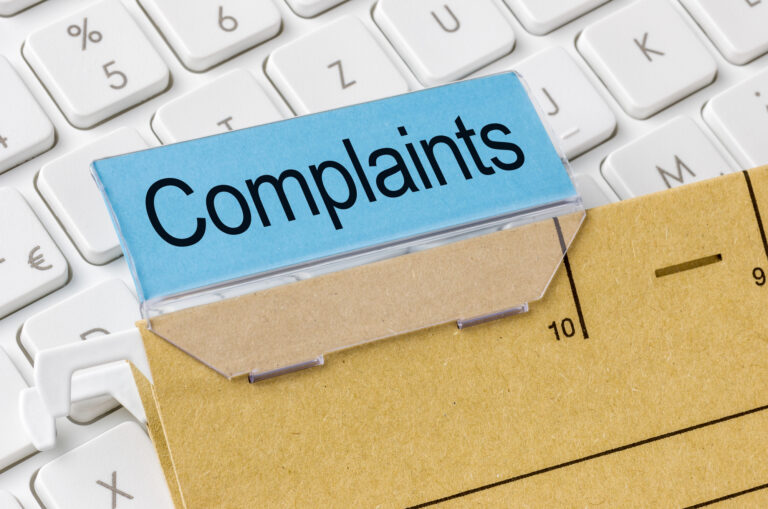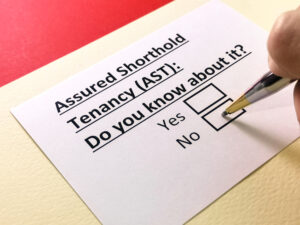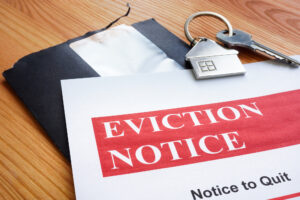You will learn how to get help when your landlord refuses or fails to meet their legal obligations, how to file a complaint against them, and how to resolve problems with your rental property in this article.
Introduction
You have every right to expect a high standard of accommodation for your rent as a tenant. The landlord should never intimidate, threaten, or treat you unfairly in any way. There are a number of ways you can make a complaint if you are dissatisfied with the state of your property or the behaviour of your landlord.
Your first step should be to see if your landlord has a complaints procedure, so you should try that first. You can always turn to your local council, Citizens Advice or the Independent Property Ombudsman if your landlord doesn’t.
Contact your landlord
You should begin by contacting your landlord or letting agent. Email them or write a letter explaining your problem. Make sure they receive the letter and acknowledge there is a problem by calling them the same day. Send another email stating the problem after a couple of days.
You should take these steps in order to demonstrate that you have contacted your landlord and given him a reasonable amount of time (given the urgency of the problem) to handle the issue.
Landlords tend to respond positively and write back, asking for additional details about the complaint, investigating the problem or coming to inspect the property if it is part of your grievance.
You may proceed to the actual complaint if the landlord has not responded or failed to meet your needs.
There may be a complaints procedure form on your landlord’s website if they have one. This is the place to start. If not, then you should file a complaint by sending a letter informing them that they have failed to fulfill your expectations and you are unhappy with their services.
As part of the tenancy agreement, the landlord also offers maintenance, repairs, and guidance.
The Tenant’s Hub suggests you seek outside help if your landlord fails to respond to the complaints form or your letter. It is possible to resolve problems with your landlord through a variety of institutions.
ADR – Alternative Dispute Resolution
The term “alternative dispute resolution” describes a process involving negotiation, arbitration, or mediation. A major benefit of tenancy deposit protection schemes is that they offer free alternative dispute resolution if you use their services.
Your landlord should have provided you with a “prescribed information” sheet where you can locate the name of your tenancy deposit scheme. The landlord has failed to follow the deposit protection procedure if you have not received such a document, and you have another complaint to file.
By running your post code through all three authorised companies, you can still find your deposit scheme:
Your deposit is not protected if you are unable to find information on any of these websites, and your landlord is responsible for up to 3 times the amount of your deposit in court.
There are other ADR services available, but you may have to pay for them.
Regardless of what alternative dispute resolution service you choose, you will have three options to settle the dispute:
- Negotiation – refers to resolving a dispute between the landlord and tenant (i.e., the tenant in discussion with the landlord).
- Mediation – involves an impartial individual helping to resolve a dispute. They will convene a meeting with you and your landlord so they can hear both sides. Afterwards, they will advise you on each party’s legal rights and responsibilities, as well as suggest a solution that will satisfy both sides.
- Arbitration – is a procedure by which an official arbitrator decides the dispute. In this process, the arbitrator will review documents, statements, and evidence related to the dispute. Once they have considered the matter, they will utilize the laws and regulations in place to make a decision.
A fair result is usually produced by the adjudicator under the law and under the given circumstances. The courts are another option if ADR fails. Citizen’s Advice can help if you are unsure of what to do because this can be a lengthy and costly procedure.
File a complaint with an official trade body
Depending on your landlord’s status, this section may or may not apply to you. The majority of landlords belong to a trade group or landlord association such as:
- National Landlord Association – NLA
- Residential Landlord Association – RLA
- Housing Ombudsman Service – HOS
Members of these organizations abide by a code of conduct. In spite of the fact that the code may vary from one body to another, it always stipulates that landlords should act responsibly and within the law, respect their tenants’ rights, and be aware of their legal obligations.
Having a landlord who is a member of one of these organizations can help you in dealing with your landlord if you complain to them.
Tenancy Relations Officer (TRO)
You might be able to get some assistance from your local council if you do not choose to go through ADR or the courts. If your landlord is acting illegally, they have a Tenancy Relations Officer (TRO) who may be able to help you.
Perhaps your landlord is:
- Violating with the rules pertaining to the property – safety checks, overcrowding, etc.
- Not addressing due problems with repairs and living conditions in the property
- Illegally evicting you or threatening you for complaining about repairs
- Harassing you or discriminating against you because of your skin colour, your ethnicity, your religion, or your sexual orientation
TRO may be able to assist you with your complaint, follow up and contact your landlord in order to resolve the issue by reminding him or her of their legal duties as a landlord. The tenancy relations officer has the authority to prosecute landlords if their actions or negligence are threatening your safety.
Your council’s Environmental Health Department
If you have a complaint to make about health and safety related issues, this is the right place to do it. Councils have Environmental Health Officers (EHOs) who are responsible for:
- Structural problems on the interior and exterior
- Electrical wiring that poses a danger
- Gas pipes or appliances that are faulty
- Appliances that malfunction
- Lack of access to a heating system or hot water
- Increasing dampness
- Roofs with leaks
- Non-compliance with fire safety regulations
- The presence of other hazards (such as asbestos)
When the EHO inspects your home, he or she will contact the landlord. The EHO will either make a formal or informal request for the problem to be fixed. An “improvement notice” can also be issued. This will force the landlord to do the needed work.
An unreliable landlord can be prosecuted, and their property marked unfit for habitation if they do not follow the prescriptions in the improvement notice.
Most landlords will obey the notice since they will be forced to make improvements until this occurs.
After October the 1st, 2015, your landlord will be unable to serve you with a Section 21 eviction notice for 6 months after the council has served the “improvement notice.” The new regulation aims to prevent retaliatory evictions.
Risks associated with complaining about your landlord
Tenancies that began before October 1, 2015, are not protected against revenge evictions. If you have an AST (Assured Shorthold Tenancy), your landlord may evict you at the end of your tenancy by giving you a minimum of two months’ notice. Section 21 notices are often used by landlords to keep tenants quiet about problems and repairs.
As a result, if you complain to the council, for example, you run the risk of the landlord evicting you at the end of the tenancy. You should seek alternative accommodation before the end of your tenancy if your landlord is unwilling to make repairs.
Disclaimer
The purpose of this article is to provide guidance. The information provided should be used for research purposes, and not as a basis for bringing legal action. No legal advice is provided by The Tenants Hub, and The Tenants Hub’s content does not establish a client-solicitor working relationship.


